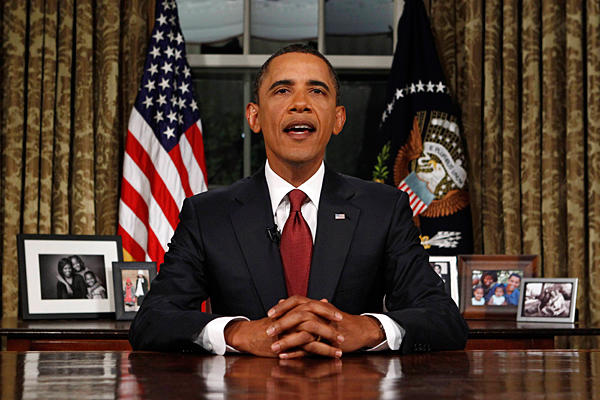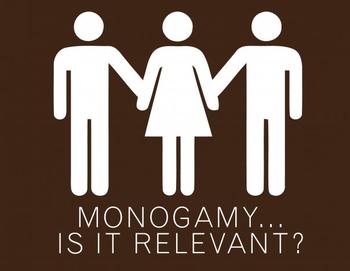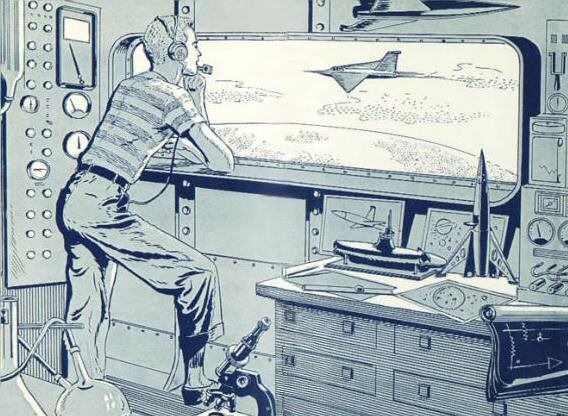This post will be a little bit more free-form than what I usually write. So buckle up, we’ve got some ground to travel.
What The Elders Know
I read a story as a kid that stuck with me. It was about a team of 1990s archaeologists who decided to excavate a 1950s landfill just to get an objective measurement for what ordinary, everyday life was really like 4 decades before. When they dug up the trash, they found human remains. Skeletons. First it was just a couple, and they thought it might have been mob violence, but then they found more and more. Something horrible had happened in this town, just 40 years ago. But it was forgotten to history. The elderly folks of the community, the only ones who would know the secret of what had happened, came to the digging site and stood staring at the excavation. Saying nothing. Whatever had happened, no one would ever know because they never broke their silence.
At the time, the story mostly just made me reconsider what we know, really know, based on our limited first-hand experience. But it also planted this idea of a group of people who are bound together by some common knowledge that they have that nobody else does.
I realize there’s a sinister spin to that tale, and that’s not what I’m going for. It’s just that idea that there are experiences that no one can tell you about. You can’t understand unless you’ve been there yourself. And, if you have been there, no explanation is necessary. From what I understand, combat is like that. I’ve read books, like On Killing, that describe some of the effects, but it’s really just enough for me to know that I don’t really get it. And, as a non-military guy, never will. Veterans understand something I can’t comprehend.
In my experience, being married is like that, too. Marriage, for me and my beloved wife, has been really, really hard at times. From talking to our close friends we’ve learned that that’s pretty common.[ref]At least, among the sort of people we are likely to be friends with, I guess.[/ref] All the couples that I know well enough to have discussed this with describe going through harrowing bad times that shook their faith in themselves, their spouse, their marriage, and pretty much everything they believed in. And nobody warned us. Nobody told us how bad it could get, and probably would get. I think partially that’s because we just forget–the bad times are already receding into memory for me–but I think it’s also just because you can’t convey what it’s like to someone who hasn’t been there. And you certainly can’t simultaneously convey how much it’s going to hurt and how much it’s still going to be worth it. There’s just nothing to say.
It’s true of raising kids, too. There are a lot of parenting jokes, and even before I was parent I more or less got them, but the most traumatic, mundane experiences of being a parent–like the sheer terror of holding a little baby that is sick and can’t tell you what’s wrong–there’s just absolutely no way to convey that feeling to someone who hasn’t been there. There’s deep connection between parents that crosses pretty much every other social boundary you can think of. I’m reminded of Jerry Holkins’ description of the birth of his son. Holkins writes often excessively vulgar comics about video games for a living. He’s a West Coast atheist with a troubled family history who jokes about porn, who never went to college, and who has a multi-million dollar company that runs giant conventions in Seattle, Boston, Australia, and now San Antonio. So, other than that we’re both geeks, we don’t have a lot in common. But when he described the way he felt after watching his wife deliver their son, I knew that there was one deep, defining experience we had in common:
I am not trying to jostle for primacy over the birth act, the utter valor of which is indelible – I’m fairly certain the credit is going to the right people. There is, however, a parallel experience that I never hear much about, something amazing and profound about the helplessness, the desperation of events which are perhaps a million long miles beyond your control. I just want to find other fathers and, looking at them across the aisles in the grocery store, hold my right fist aloft. I am with you.
There are lots more experiences like this, as well. I think of all the times I got advice from mentors–friends and family with more experience than me–about life decisions. What to study in school, whether to buy a house, what to do with my career, how to follow my passions. Time and time again I’ve found that some of the most important advice was always the advice that, no matter how much I earnestly wanted to learn from these people, I just couldn’t follow. I couldn’t follow it because I couldn’t even understand it. It didn’t compute. I might have thought I understood, but I lacked the perspective and the context to see when and how it applied in my life. I only figured out, years and mistakes later, what it was that they had been trying to tell me.
All of this means that the older I get the more I respect my elders. They’ve been there. They’ve been through a lot of the big experiences but also just the accumulated weight of life under uncertainty. They’ve been on the ride longer. The highs, the lows, what changes, what stays the same. I think they know things, things that maybe I won’t be able to understand until I get there myself. My father’s father passed away too young. As the years go by, I find that I miss him more. Not less. I wish he were here.
Maybe he could help me make sense of this crazy world.
Sound and Fury
Let me be clear about what I mean when I say “this crazy world.” I mean the world is full of people who hold such absolutely wildly divergent opinions and perspectives that if you try to get out there and really understand what’s motivating them all your brain feels like it might break under the strain. Humans handle complexity primarily through abstraction. We find patterns, drop the details, and hold onto the narratives. But when the thing that interests and concerns you is precisely the narratives and paradigms that other people are seeing the world through, abstraction is easier said than done.
Here, enough generalities, lets get to some specifics.
Just a few hours ago, a friend posted an article from Mother Jones about How Gun Extremists Target Women. It starts with the experiences of Jennifer Longdon, a woman who uses a wheelchair because she was permanently paralyzed when a random assailant shot her and her fiancee for no apparent reason.[ref]The shooter was never caught.[/ref] Since becoming a vocal advocate for more gun control laws, she has been spat upon, cursed at, threatened, and even had some guy jump out of the bushes at night and spray her with a realistic-looking water gun. My friend’s comment when he posted the article was just, “Wow. Um, wow.” I guess he believes this is accurate of a small but vocal minority of gun rights activists? My first reaction was that, hey, I’ve been involved in this movement for years (only loosely, but still) and I’ve never seen any behavior like that.
Except that, hours later, I realized that I kind of had. On one particular gun forum I used to hang out at things got way out of hand in a heated debate and next thing you know people are trying to use the real world to intimidate their ideological foes, everything from digging up personal photos to threatening civil and criminal action. I don’t think death threats were involved–and none of the participants were women–but it was ugly enough that I still have screenshots saved on my computer more than 5 years later just in case I ever need to defend myself.
Let’s move on rather than analyze. What else have we got? Oh, how about this gem from the Daily Mail about how a respected climate scientist with over 200 publications joined the board of a skeptical organization (the Global Warming Policy Foundation) because:
I thought joining the organisation would provide a platform for me to bring more common sense into the global climate change debate. ‘I have been very concerned about tensions in the climate change community between activists and people who have questions.
So, he tried to bring some reason and cross-partisan talk to a contentious and serious debate? Big mistake. Next thing you know he’s being harassed online and it got to a point where an American co-author of a paper pulled out because he refused to be associated with someone who was associated with a skeptical organization, even if the person had joined the skeptical organization to try and temper it. Not good enough. Professor Lennart Bengtssen lasted a grand total of three weeks in his new position before the pressure forced him to resign.
Or how about the rash of colleges that have withdrawn invitations to commencement speakers because students protested against allowing anyone who was insufficiently ideologically pure to contaminate their ears. It’s gotten to a point where The Daily Beast[rerf]Not exactly a bastion of conservative sensibilities.[/ref] published an article with the headline proclaiming that The Oh-So-Fragile Class of 2014 Needs to STFU And Listen to Some New Ideas. Olivia Nuzzi writes about how Christine Legarde (head of the IMF) got uninvited from Smith College’s commencement in the same month that Condoleeza Rice pulled out of a speaking gig at Rutgers. (Nuzzi doesn’t mention a third example that we covered at Difficult Run: Brandeis decided that Ayaan Hirsi Ali didn’t deserve an honorary degree after all.)
Wait, wait. There’s more. How about Neil deGrasse Tyson slamming philosophy–yes, the entire discipline of philosophy as ‘useless’. A quick review of his comments is instructive. He frames it as an objective, and pragmatic stance (i.e. non-ideological) but seems to lack the philosophical sophistication to realize that far from brushing philosophy off, what he’s actually doing is engaging in a purge of the wrong kind of philosophy. Materialist reductionism? That’s fine. It’s just all those other kinds of philosophy that are useless. I guess he has so dogmatically accepted his own particular philosophical stance that he’s forgotten it isn’t an unyielding element of the fabric of the objective universe. It’s just the particular brand of philosophy he happens to prefer.
Meanwhile, the UN is trying to get pro-life perspectives classified as “torture.” No, really. The Center for Reproductive Rights submitted a letter stating that:
CRR respects the right of each individual to freedom of religion and acknowledges the importance of religious institutions in the lives of people, including the role they may play in ensuring respect for human dignity. As with any party to an international human rights treaty, however, the Holy See is bound to respect, protect, and fulfill a range of human rights through its policies and its actions. As such, this letter focuses on violations of key provisions of the Convention against Torture associated with the Holy See’s policies on abortion and contraception, as well as actions taken by the Holy See and its subsidiary institutions to prevent access to reproductive health information and services in countries around the world.
So, freedom of religion is a nice idea, but if it entails opposition to abortion then you’re in contravention of the Convention against Torture. Uh… OK?
And, as long as we’re hitting pretty much every hot-button issue of the day, let’s move right along to gay rights and Hollywood’s Sex Abuse Cover Up. Describing the wall of silence about growing allegations of sexual abuse of children by Holywood elites, conservative writer Andrew Klavan observed simply that:
If these [people accused of pedophilia] were conservatives, if these were priests, if they were religious people, this would be a huge story. But as it is, it’s gonna get swept under the rug unless more people come forward.
The article describes sexual abuse detailed by Corey Feldman (of Boy Meets World) in his new memoir, abuse that started when he was 11, along with allegations of abuse against director Bryan Singer and then an absurdly white-washed version of history in the film Kill Your Darlings. The film is supposedly a biopic centering on Lucien Carr, who assembled the original Beat Generation. It portrays Carr’s professor David Kammerer as a kind of mentor and possible romantic interest. The reality? Kammerer was a pedophile stalker who sexually abused Carr to such an extent that, when Carr finally fatally stabbed his tormenter with a Boy Scout knife, the history of abuse convinced the judge to be lenient in sentencing him. That history–the real history, according to Carr’s family–is swept under the rug. Maybe this is about preserving the image of the gay community during the height of the gay rights movement, but hey: Hollywood has been a safe haven for child rapists of the heterosexual persuasion too, so maybe it’s just a generic “Your rules don’t apply here,” kind of thing.
I started with a kind of anti-conservative example, then moved onto a series of anti-liberal examples, so now let’s get back to conservative nuttiness. This YouTube video hails from 2007, so it’s not new, but it was stomach churning for me to watch.
https://www.youtube.com/watch?feature=player_embedded&v=4XiizB9Lkqk
In it, a Hindu guest chaplain tries to offer the opening prayer in the Senate when he is shouted down by Christians saying stuff like “forgive us Father for allowing the prayer of the wicked which is an abomination in your sight.” You’d think folks who tend to think God had a hand in founding this nation might have more reverence for the principles of tolerance and religious freedom that went into it. Well, I’d think that. If I weren’t so cynical.
Here’s what these examples all seem to have in common to me. It’s not about politics. It’s not even about a particular issue. It’s about the idea that we shouldn’t be tolerant of views that contradict our own. It’s about the idea that we should squelch views that we disagree with, rather than engage them. Gun rights proponents issue death threats to paralyzed women who disagree. Climate scientists sabotage the careers and reputations of one of their own when he so much as appears to depart from the orthodox view. College kids block speakers who might disagree with them from being able to speak. The Catholic Church (and, by extension, anyone who is pro-life) gets labeled as a torturer in contravention of international norms and human decency. Hollywood directors silence their critics and rewrite history to protect the reputation of favored groups and individuals. Christians won’t even let a man pray just because he has a different faith.
Look, I’m on all sides of these issues (and maybe off the charts on a couple of them), but that’s just my point. It’s not about the issues. This is not civilized, rational, healthy behavior. Here’s my absolute favorite one, though. It delves deep, deep into crazy town to showcase a meeting of Anarcho-Syndicalists getting shut down because Students of Unity refused to allow one of the anarchist professors to speak. (Warning: video has lots of swearing.)
I actually got curious to figure out what was behind the kerfuffle. Apparently Students of Unity are mad that anarchist Kristian Williams wrote some stuff that included “survivor shaming” and “survivor doubt” and that constitutes “violence.” Williams isn’t feminist enough, and needs to be “accountable for all the people who feel unsafe by the words [she chooses].”[ref]I am not sure these people understand what the word ‘violence’ means.[/ref] I did a little Googling to find the offending piece. It’s called The Politics of Denunciation. It’s absolutely fascinating and spooky to read, because in it Williams writes against exactly what I’ve been describing. She takes a stand against those who try to pre-empt differing views from ever being expressed at all.
The particular target she has in mind is the idea that a survivor of an attack (like sexual assault) must be the only voice allowed to speak at all:
Under this theory, the survivor, and the survivor alone, has the right to make demands, while the rest of us are duty-bound to enact sanctions without question. One obvious implication is that all allegations are treated as fact.
So what she’s saying is that, “Hey, just because someone accuses someone else of sexual assault, it doesn’t automatically mean that whatever that person said is automatically true and that no other perspective is relevant.” Seems pretty tame. But the more general argument she makes is that quashing differing views is a bad thing to do:
While attempting to elevate feminism to a place above politics, the organizers’ statement in fact advances a very specific kind of politics. Speaking authoritatively but anonymously, the “Patriarchy and the Movement” organizers declare certain questions off-limits, not only (retroactively) for their own event, but seemingly altogether. These questions cannot be asked because, it is assumed, there is only one answer, and the answer is already known. The answer is, in practice, whatever the survivor says that it is.
It seems like a very obscure, tiny, fringe discussion, but it’s actually not. It’s the same pattern as every single example I’ve expressed so far. Someone claims to be above politics (like Neil deGrasse Tyson is above philosophy) but in fact they are just trying to elevate a very particular political statement beyond question and thereby silence all dissenting views. Williams argued that we should make room for multiple viewpoints. And for that she and her whole panel were shouted down and silenced.
Nowhere To Turn
It may seem that I’m focusing on some weird, esoteric issues. And I’ll definitely admit that what dragged me down this rabbit hole in the first place was my attempt to delve deeper into the SFWA controversy I wrote about a couple of weeks ago. That, in turn, spawned the article that I wrote about trigger warnings. I took a mostly conservative view in those posts because that’s who I am, but maybe the saddest thing about this whole controversy is that, from where I’m standing, there are no good guys and bad guys. I’d love to just toss my hat in with the conservatives and feel like I have a home, but I can’t. I can’t because–much as I have no beef with folks like Wright, and Torgersen, and even Correia–the more I dug into what Vox Day had said (and he’s the conservative who really got the liberals angry in the first place) the more I decided that a lot of what the liberals said about him is true. The central allegation is that he’s a racist, and it’s based on comments that he made about an African-American writer N. K. Jemisin. So I found the blog post in question, and I read it. Here’s the money paragraph:
Unlike the white males she excoriates, there is no evidence to be found anywhere on the planet that a society of NK Jemisins is capable of building an advanced civilization, or even successfully maintaining one without significant external support from those white males. If one considers that it took my English and German ancestors more than one thousand years to become fully civilized after their first contact with advanced Greco-Roman civilization, it should be patently obvious that it is illogical to imagine, let alone insist, that Africans have somehow managed to do the same in less than half the time at a greater geographic distance. These things take time.
In other blog posts, Vox Day denies being a racist. I can see he might be trying to get off on a technicality, something like “it’s not about race, per se, it’s just that civilization takes time, and Africans have been exposed to (Greco Roman) civilization for a shorter period of time.” Yeah, I’m not buying it because Vox Day is obviously not arguing in good faith. He talks about the “greater geographic distance” it would take for Africa to become civilized (let’s just not even touch that one for a moment) when the person he is calling “half-savage” was born in Iowa.[ref]Wikipedia[/ref]
So there’s your microcosm of what is wrong with the world. We’ve got just enough folks like Vox Day to enable folks like the Students of Unity who shouted down Kristian Williams to feel justified in trying to intimidate anyone into silence who disagrees with them.
And that’s why I want to ask those old folks–those elderly men and women with decades’ worth of life lessons I haven’t experienced yet–is it always like this? I wish someone could tell me it’s gonna get better–or at least that it’s been worse–because it’s kind of lonely and scary to feel that not only have the loonies taken over the asylum, but they broken down the walls, invaded city hall, and taken over there, too.
Because, yeah, I’d love to chalk this up to upstart young idiots not knowing any better and how every generation always thinks the generation after them is going to destroy the world. And that might work for all those stories of college undergraduates protesting against speakers they don’t want to hear or Students of Unity shouting down anyone they don’t like, but Vox Day is not a kid. The gun control opponents who spit on Longdon are not kids. The Center for Reproductive Rights is not, to my knowledge, run by kids. The Christians who shouted down the Hindu chaplain didn’t sound like kids. These are grown ups, in theory at least, and they are occasionally in positions of real power.
And yeah, every generation thinks the world is going to hell in handbasket once the next generation starts to take over, but every now and then they’re right, aren’t they? Sometimes the sky is falling.
Me, I guess I’ll just keep on doing what I’m doing. I’ve got my views, and they are mostly conservative, but I also believe in tolerance and intellectual diversity. Maybe it’s foolish and naive, but I like the idea of having noble ideological adversaries that I oppose, but that engage in a fight that has rules and principles. So, although it’s not as loud or as exciting or as clear-cut as what other sites can offer, that’s what we’ll keep doing here at Difficult Run.
One More Thing: About that Right to Free Speech
XKCD recently had a comic about the right to free speech.

Technically, of course, it’s correct. But it’s a deeply disturbing view. The right to free speech has always been more than a strict legalism in American culture. It’s always been about more than just the freedom from government censorship. It has always involved a culture of tolerance. A view that not only is the government legally prohibited from regulating speech, but also that we as Americans ought to relish our chaotic, free-wheeling, marketplace of ideas. No, there’s no law that says people have to listen to you and there never should be. No, there’s no law that protects people from being free from other people telling them that they think their speech is crap. And again: there never should be. But when a bunch of people get together and use their own freedom of speech to silence someone they don’t like: it’s a violation of who we are as Americans even if it’s not technically a violation of someone’s legal rights.
Randall Munroe (author of XKCD) is right on the letter of the law, but he’s wrong on the spirit. I don’t know exactly where to draw the line, and I’m not saying we should never boycott. We have a comment policy here at Difficult Run, after all. Communities need to regulate what is and is not considered acceptable for that community. But I just wish that tolerance–real tolerance of genuinely conflicting ideas–was something that more communities would actively choose to embrace. Not because the law requires them to do so, but just because it’s the right thing to do.













